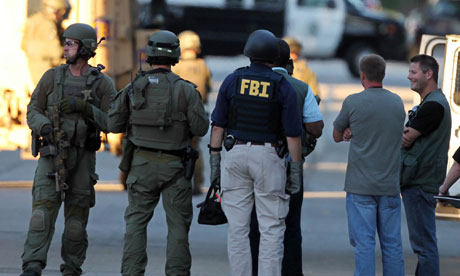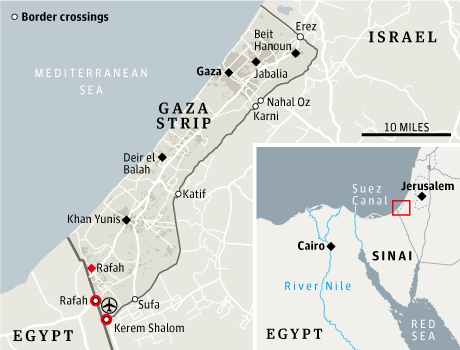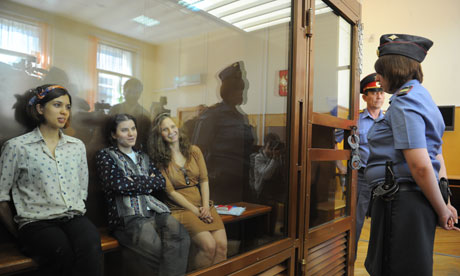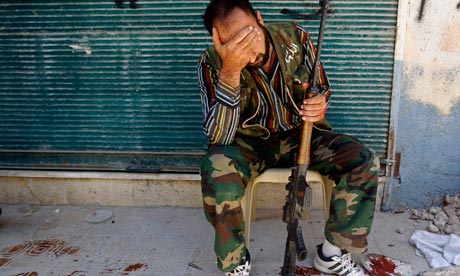Iran pledged that its "axis" with Syria will "never" be allowed to break when Tehran sought to bolster President Bashar al-Assad by sending a senior envoy to Damascus.
Mr Assad made his first appearance on state television for over a fortnight, promising to continue the struggle against his enemies "without respite".
Iran
has been trying to guarantee the survival of Mr Assad, who serves as
Tehran's only reliable ally in the Middle East, by supplying Syria's
regime with funds, weaponry and expert personnel to aid the campaign against
rebels.
Saeed Jalili, the secretary of Iran's Supreme National Security Council, came
to Damascus as a visible symbol of that support.
"Iran will never allow the resistance axis – of which Syria is an
essential pillar – to break," he said. The "axis of
resistance" refers to the Middle East's anti-Western powers: Iran,
Syria and the armed groups, Hizbollah and Hamas, although in reality the
latter has already broken away by ending its presence in Damascus.
Iran and Syria both claim that foreign countries have caused the uprising
against Mr Assad with the aim of destroying the "axis". During his
visit, Mr Jalili echoed that message. "What is happening in Syria is
not an internal issue but a conflict between the axis of resistance on one
hand, and the regional and global enemies of this axis on the other,"
he said.
Syria's regime has suffered a series of reverses in recent weeks, with Riyad
Hijab, the prime minister, defecting on Monday and denouncing Mr Assad's "murderous"
government.
The rebel Free Syrian Army now controls much of the country: its fighters are struggling for possession of Aleppo, the commercial capital. The FSA claimed to be delaying the regime's advance on the city at the end of a day of intense fighting. Mr Assad's forces had been unable or unwilling to enter the key district of Salaheddin, despite reinforcements of thousands of troops and hundreds of tanks, according to rebel spokesmen. The insurgents were also encircling government troops in the northern half of Aleppo. They believe the army's inability to fully employ tanks in built-up areas has blunted its assault.
On Tuesday, however, Mr Assad reassured his Iranian guest of his determination to fight on. "The Syrian people and their government are determined to purge the country of terrorists and to fight the terrorists without respite," he said.
The Iranian envoy also demanded the release of 48 of his country's citizens, who were kidnapped by Syrian rebels while visiting a shrine near Damascus. Mr Jalili pledged to use "all means possible" to win their freedom. An official letter sent to the US administration by Iran's foreign ministry said that Washington, as the "manifest" sponsor of "terrorist groups" in Syria, was responsible for the captives' safety.
The rebels, for their part, claimed that members of the Iranian Revolutionary Guard Corps were among the hostages. They believe that Iran has sent soldiers from this unit to fight alongside Syrian forces. The pilgrimage was, the rebels say, merely a cover for infiltrating more Iranian combatants into the country. To support this allegation, the rebels produced military identity cards supposedly found on the hostages.
However, any Iranian who has performed compulsory military service will hold these documents: they do not prove current membership of the country's armed forces.
Syria's regime, dominated by members of the Alawite sect of Shia Islam, bases its alliance with Iran's Shia rulers on religious fraternity. In addition, Syria provides Iran with its only base for influence in the Arab world, as well as offering a route for supplying weapons to Hizbollah, the radical Shia group based in south Lebanon.
If Mr Assad were to be overthrown, Iran would risk losing this influence and its vital link to Hizbollah. Experts believe this would amount to a strategic setback. "For Iran, Syria is a very important partner in a region where allies are not easy to come by," said Gareth Stansfield, from the Middle East and North Africa programme at Chatham House. "If Assad goes, he will replaced by a government that is likely to be totally antipathetic to Iran's wider interests."
Sixteen civilians - mostly Alawites and Christians - meanwhile were killed by anti-regime gunmen in an attack on a housing compound near Homs, according to the Syrian Observatory for Human Rights.
The majority of Syria’s population is Sunni Muslim, while the ruling clan of President Bashar al-Assad belong to the Alawite sect, an offshoot of Shia Islam.
The rebel Free Syrian Army now controls much of the country: its fighters are struggling for possession of Aleppo, the commercial capital. The FSA claimed to be delaying the regime's advance on the city at the end of a day of intense fighting. Mr Assad's forces had been unable or unwilling to enter the key district of Salaheddin, despite reinforcements of thousands of troops and hundreds of tanks, according to rebel spokesmen. The insurgents were also encircling government troops in the northern half of Aleppo. They believe the army's inability to fully employ tanks in built-up areas has blunted its assault.
On Tuesday, however, Mr Assad reassured his Iranian guest of his determination to fight on. "The Syrian people and their government are determined to purge the country of terrorists and to fight the terrorists without respite," he said.
The Iranian envoy also demanded the release of 48 of his country's citizens, who were kidnapped by Syrian rebels while visiting a shrine near Damascus. Mr Jalili pledged to use "all means possible" to win their freedom. An official letter sent to the US administration by Iran's foreign ministry said that Washington, as the "manifest" sponsor of "terrorist groups" in Syria, was responsible for the captives' safety.
The rebels, for their part, claimed that members of the Iranian Revolutionary Guard Corps were among the hostages. They believe that Iran has sent soldiers from this unit to fight alongside Syrian forces. The pilgrimage was, the rebels say, merely a cover for infiltrating more Iranian combatants into the country. To support this allegation, the rebels produced military identity cards supposedly found on the hostages.
However, any Iranian who has performed compulsory military service will hold these documents: they do not prove current membership of the country's armed forces.
Syria's regime, dominated by members of the Alawite sect of Shia Islam, bases its alliance with Iran's Shia rulers on religious fraternity. In addition, Syria provides Iran with its only base for influence in the Arab world, as well as offering a route for supplying weapons to Hizbollah, the radical Shia group based in south Lebanon.
If Mr Assad were to be overthrown, Iran would risk losing this influence and its vital link to Hizbollah. Experts believe this would amount to a strategic setback. "For Iran, Syria is a very important partner in a region where allies are not easy to come by," said Gareth Stansfield, from the Middle East and North Africa programme at Chatham House. "If Assad goes, he will replaced by a government that is likely to be totally antipathetic to Iran's wider interests."
Sixteen civilians - mostly Alawites and Christians - meanwhile were killed by anti-regime gunmen in an attack on a housing compound near Homs, according to the Syrian Observatory for Human Rights.
The majority of Syria’s population is Sunni Muslim, while the ruling clan of President Bashar al-Assad belong to the Alawite sect, an offshoot of Shia Islam.















